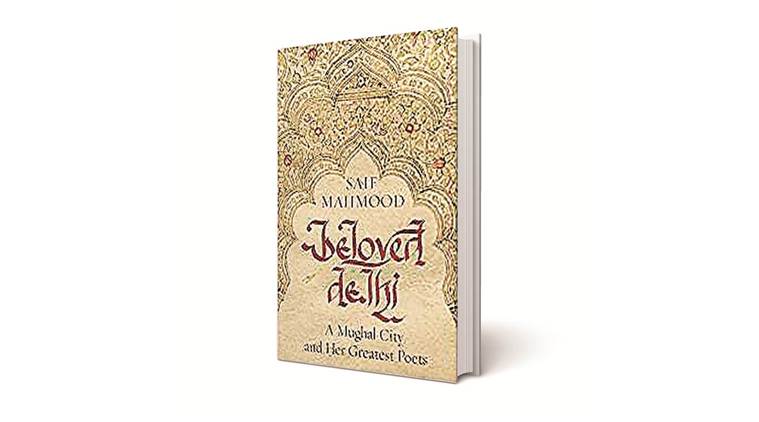Written by Madhulika Liddle |Published: May 18, 2019 3:00:04 am
The City of Mushairas
The life and times of Delhi’s leading poets of the Mughal era and their enrichment of a syncretic language

Beloved Delhi: A Mughal City and Her Greatest Poets
Saif Mahmood
Speaking Tiger
367 pages
Rs 599
Saif Mahmood
Speaking Tiger
367 pages
Rs 599
Shaikh Mohammad Ibrahim Zauq, the poetry ustaad of the last Mughal Emperor, Bahadur Shah ‘Zafar’ saw, in his lifetime, the Mughal Empire brought to its knees (though not formally ended — Zauq, perhaps mercifully, died three years before the ‘Ghadar’ of 1857, the uprising that was to so impact the fabric of Delhi’s social, cultural and literary life). But an impoverished Mughal court and an equally penurious north Indian aristocracy meant that many of Zauq’s contemporaries drifted south to Hyderabad, where there was still patronage to be sought and stipends to be earned. Zauq, however, when asked why he did not migrate to the Deccan, had famously remarked, “In dinon garche Dakan mein hai bohot qadr-e-sukhan/ Kaun jaaye Zauq par Dilli ki galiyaan chhor kar?” As Saif Mahmood translates this in his book Beloved Delhi: “Although poetry is greatly valued in the Deccan these days, Zauq, who would trade that for the lanes of Delhi?”
It is this — the connection between Delhi and her Urdu poets, an almost umbilical cord that binds the city to her greatest bards — that forms an important theme in Mahmood’s book. Beloved Delhi has, as its subtitle, A Mughal City and Her Greatest Poets, and those words describe the book perfectly: it is about the Mughal city of Delhi — not the city before or after the Mughals (though there is a fleeting mention of those as well), and about its greatest poets of the 18th and 19th centuries.
Mahmood examines the life and work of eight of Delhi’s greatest Urdu poets, against the backdrop of the city. Mirza Mohammad Rafi Sauda, Khwaja Mir Dard, Mir Taqi Mir, Mirza Asadullah Khan Ghalib, Momin Khan Momin, Bahadur Shah Zafar, Shaikh Mohammad Ibrahim Zauq and Nawab Mirza Khan Daagh Dehlvi are the eight poets who form the subject of Mahmood’s book. For each poet, Mahmood begins with a biography (often preceded by a description of the current state of the poet’s grave or former home). The biography is followed by an insight into the most relevant aspects of the poet’s work — Sauda’s satire, Zauq’s use of everyday language, Momin’s sensuality, Ghalib’s often cryptic verses, and so on. Finally, there are selected verses (with translations) by each poet.










.png)











No hay comentarios:
Publicar un comentario